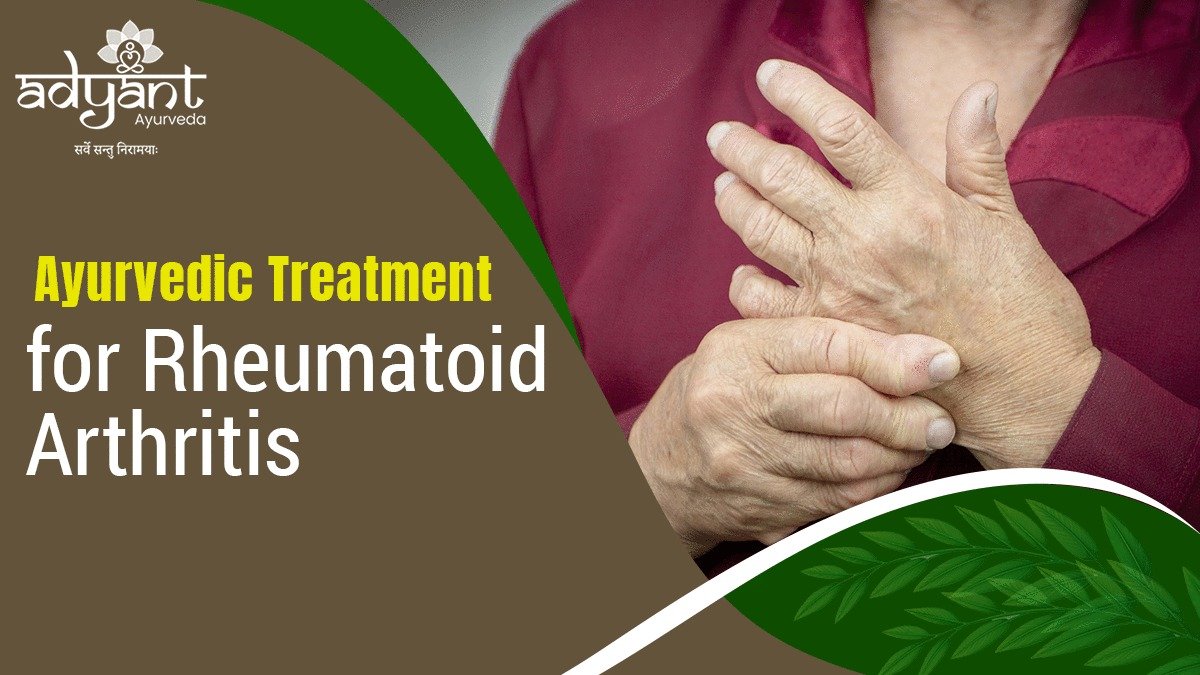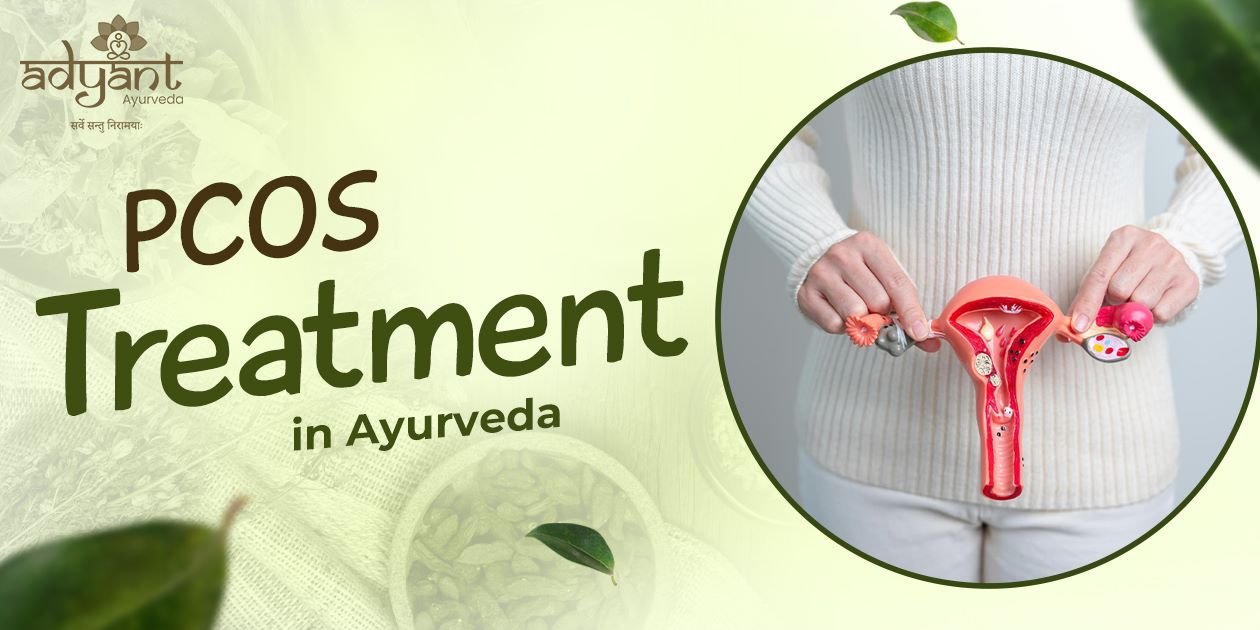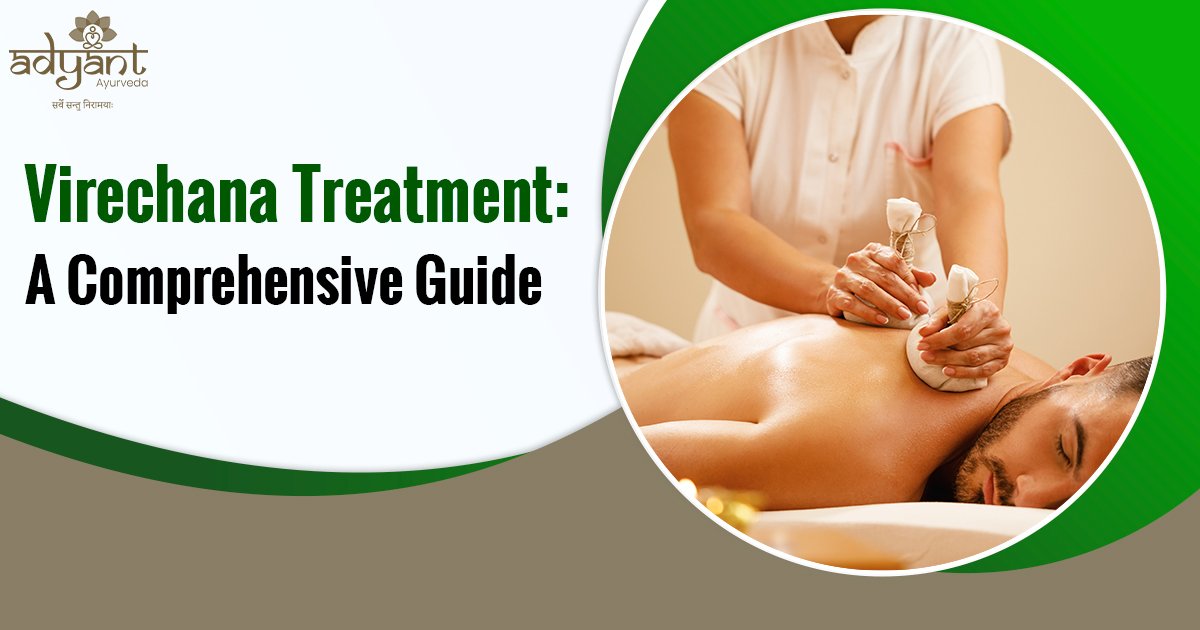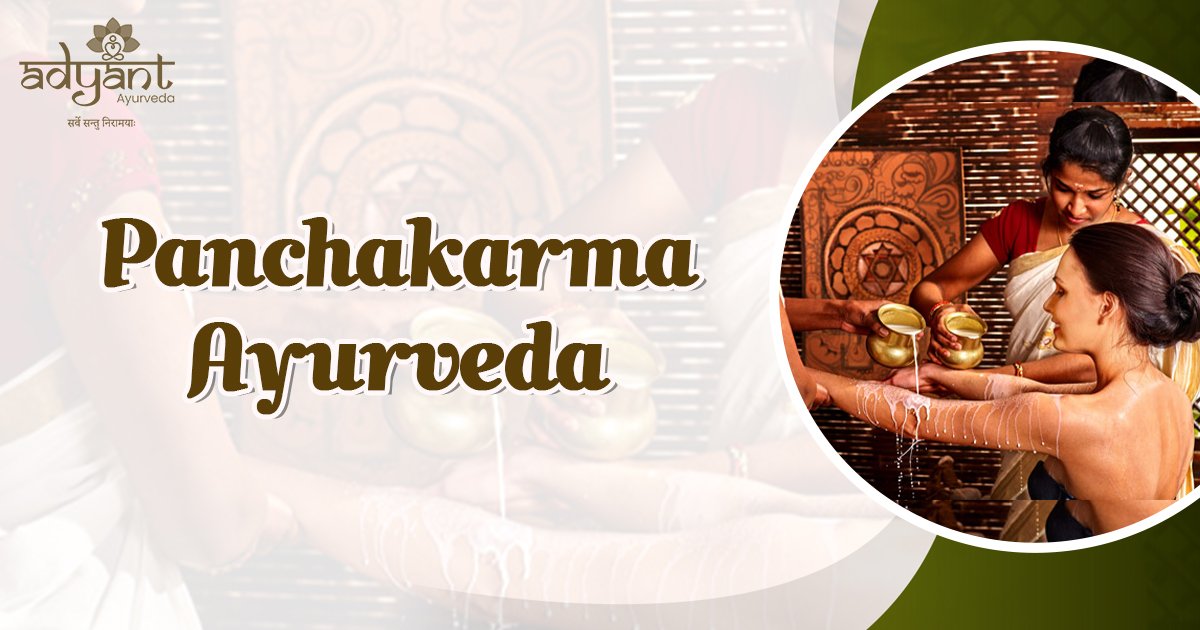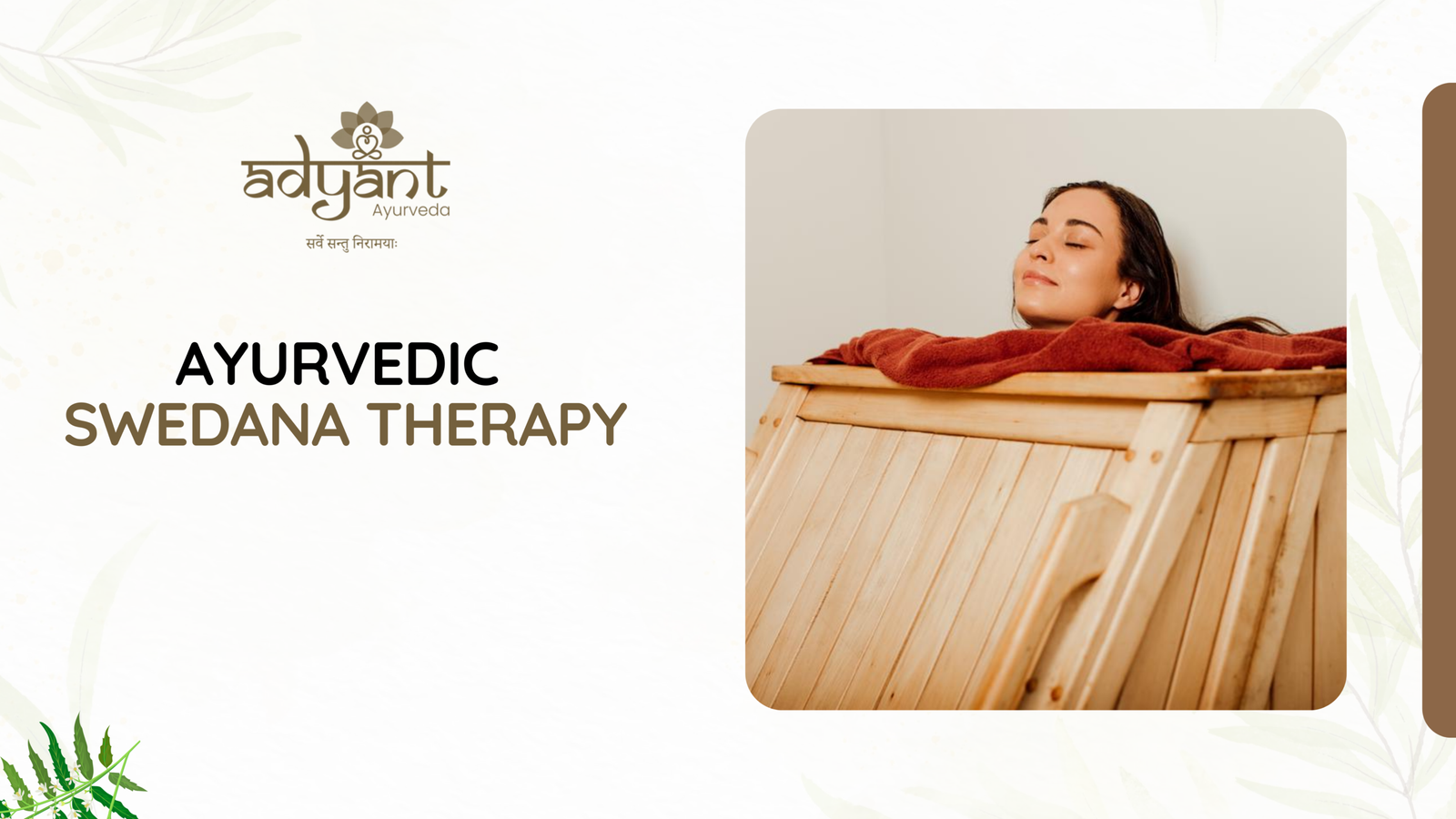Table of Contents
ToggleRheumatoid Arthritis (RA) is a chronic autoimmune disorder causing joint inflammation, pain, stiffness, and reduced mobility. While conventional medicine often focuses on symptom management, Ayurveda offers a time-tested, holistic solution by addressing the root causes of RA—especially the accumulation of Ama (toxins) and Vata dosha imbalance.
📲 Book a Free Consultation
Connect with top Ayurvedic doctors specializing in Rheumatoid Arthritis.
👉 Download our “AyurCare” app from the Play Store.
At Adyant Ayurveda, treatments are fully customized based on your Prakriti (body constitution) and Vikriti (current imbalance), ensuring a safe, effective, and personalized healing experience.
🔬 What is Rheumatoid Arthritis (RA)?
RA is an autoimmune condition where the immune system attacks the synovial membrane, causing persistent joint inflammation, pain, and potential joint deformities over time.
🩺 Stages of RA Progression
| Stage | Symptoms |
|---|---|
| Early Stage | Mild joint pain, stiffness, fatigue |
| Intermediate Stage | Increased pain, restricted joint movement, thickened synovial membrane |
| Advanced Stage | Cartilage damage, bone erosion, systemic complications |
🔍 Signs & Symptoms of RA
Tender, swollen joints
Morning stiffness lasting over an hour
Symmetrical joint involvement
Fatigue, weight loss, low-grade fever
Rheumatoid nodules under the skin
Cardiovascular, respiratory, and psychological complications
🌿 Ayurvedic Perspective – RA as Amavata
In Ayurveda, RA is classified as Amavata, primarily caused by:
✔️ Vitiated Vata Dosha
✔️ Ama accumulation due to weak digestion (Mandagni)
✔️ Obstruction in Srotas (body channels)
🌱 Ayurvedic Understanding & Pathophysiology
Sandhivata (Osteoarthritis): Aggravation of Vata leading to cartilage degeneration and joint stiffness.
Amavata (Rheumatoid Arthritis): Combination of Ama accumulation and Vata-Kapha disturbance resulting in joint inflammation, swelling, and pain.
Key contributing factors:
✔️ Imbalanced Doshas (Vata, Pitta, Kapha)
✔️ Improper digestion (Agni Dushti)
✔️ Lifestyle factors (sedentary habits, stress, poor diet)
🧠 Ayurvedic Diagnostic Tools
Samprapti Ghataka (Pathogenesis mapping)
Assessment of Asthi (Bone) & Majja Dhatu (Bone marrow)
Affected Srotas: Rasavaha, Asthivaha, Majjavaha
Clinical metrics: Grip strength, walking time, ESR, RA factor
📊 Samprapti Flow
Mandagni → Ama Formation → Vata Vitiation → Blocked Channels → Joint Inflammation → Amavata
🧾 Types of Amavata
Acharya Harita’s Classification: Vishtambhi, Gulmi, Snehi, Sarvangi
Dosha-Based: Vatanuga, Pittanuga, Kaphanuga, Tridoshaja
Duration-Based: Navina (<1 year), Purana (>1 year)
⚠️ Causes of RA in Ayurveda
Poor digestion (Mandagni)
Viruddhahara (incompatible food combinations)
Sedentary lifestyle
Chronic stress and emotional instability
Hereditary tendencies & weak immunity
🧘♂️ Ayurvedic Treatment Approach
🎯 Core Principles
Balance Vata Dosha
Eliminate Ama
Rekindle Agni (digestive fire)
Strengthen Dhatus
🧴 Panchakarma Therapies for RA
| Therapy | Purpose |
|---|---|
| Vamana | Removes excess Kapha & early-stage Ama |
| Virechana | Eliminates Pitta & inflammatory toxins |
| Basti | Restores Vata balance, nourishes joints |
| Raktamokshana | Reduces severe joint inflammation |
| Abhyanga + Sweda | Lubricates joints & relieves stiffness |
🛠️ Treatment Phases
Purvakarma (Preparatory Phase):
Deepana-Pachana (Trikatu, Guggulu)
Snehapana (Mahatikta Ghrita)
Swedana (Herbal steam)
Paschat Karma (Post-Therapy):
Samsarjana Krama (Gradual reintroduction of food)
Rasayana therapy (Ashwagandha, Amalaki, Bala)
💊 Herbal Formulations
| Category | Examples |
|---|---|
| Decoctions | Amruthotharam Kashaya, Rasnasaptaka Kashaya |
| Tablets | Kaishora Guggulu, Simhanada Guggulu, Triphala Guggulu |
| Oils | Dhanwantaram Taila, Narayana Taila, Eranda Taila |
| Lepas | Kottamchukkadi Lepa, Dashanga Lepa |
🧾 Common Protocols
Simhanada Guggulu + Eranda Taila – Ama elimination
Vatavidhvansak Rasa + Yogaraja Guggulu – For chronic RA
Amavatari Rasa – 250mg TID – Proven to improve mobility within 8 weeks
🧪 Scientific Evidence Supporting Ayurveda
WHO/ICMR Study (1977–1984):
A landmark longitudinal study involving 290 RA patients showed statistically significant improvements in grip strength, walking ability, number of swollen and painful joints, ESR, and RA Factor, without toxicity or adverse effectsIJAR Study (2011):
Improved grip strength, mobility, and reduced inflammation in RA patients treated with classical Ayurvedic medicines.AYUSH Clinical Trial (2018):
Panchakarma combined with Kaishora Guggulu led to reduced ESR and improved pain scores in 12 weeks.Amavatari Rasa Case Study (2018):
A 32-year-old female RA patient treated solely with Amavatari Rasa (250 mg TID for 8 weeks) achieved:
✔️ 35% symptomatic improvement
✔️ Significant reduction in CRP and RF
✔️ Reduced NSAID use
All without adverse effectsCase Report:
35% symptom improvement in a 1-year RA case after 8 weeks of Amavatari Rasa without any adverse effects.
🍽️ Diet & Lifestyle Recommendations
✅ Eat:
Warm, easy-to-digest foods (Moong dal, barley, old rice)
Bitter vegetables: Neem, Karela
Digestive herbs: Ginger, black pepper, turmeric
Herbal teas: Dashamoola, Triphala
❌ Avoid:
Cold, fermented, stale, heavy foods
Dairy (especially curd), sugar, nightshades
Incompatible combinations (milk + fish, curd + meat)
🧘 Lifestyle Tips:
Daily Abhyanga (oil massage)
Light Yoga (Vajrasana, Ardha Matsyendrasana)
Pranayama (Anulom Vilom, Bhramari)
Avoid overexertion, late meals, and daytime naps
🛡️ Preventive Care for High-Risk Individuals
Vata-pacifying routine after age 40
Seasonal Panchakarma detox
Avoid Viruddhahara and sedentary habits
Regular yoga and stress management
💪 Long-Term Outcomes
Patients undergoing Panchakarma + Rasayana therapy report:
✔️ Long-term symptom remission
✔️ Reduced dependence on steroids
✔️ Enhanced digestion & metabolism
✔️ No flare-ups for 6–12 months
🌟 Why Choose Adyant Ayurveda?
👩⚕️ Expert Team of Ayurvedic Doctors
Dr. Shree Lakshmi – 28 years of experience
Dr. Sumana Patvardhana – 24 years of experience
Dr. Vidya – 19 years of experience
Dr. Preethi – 23 years of experience
Dr. Bhagya Lakshmi – 22 years of experience
Dr. Apoorva – 5 years of experience
🏥 5 Convenient Centers in Bangalore
Jayanagar
Indiranagar
Kalyan Nagar
RR Nagar
Bannerghatta Road
📱 Online & Offline Consultations Available
🧴 Authentic In-House Ayurvedic Pharmacy
🌱 Proven Rasayana Therapy to Strengthen Asthi and Majja Dhatus
🌱 Role of Rasayana Chikitsa
Rasayana herbs like Ashwagandha, Amalaki, Bala, and Guduchi:
✔️ Rejuvenate tissues
✔️ Improve immune resilience
✔️ Prevent recurrence of RA symptoms
✔️ Strengthen bones and marrow (Asthi & Majja Dhatu)
🏡 Ayurvedic Home Remedies (Supportive Care)
Castor Oil + Dry Ginger Paste
Turmeric Milk (Haldi Doodh)
Fenugreek (Methi) Seeds
Garlic Cloves (Lahsun)
Triphala Churna
Ajwain (Carom Seeds) Soak
Epsom Salt + Dashamoola Decoction Soak
Coriander + Cumin + Fennel Water
⚠️ Note: These are supportive remedies only and not substitutes for professional care.
💸 Ayurvedic Treatment Cost for Rheumatoid Arthritis (RA)
| Treatment | Cost (INR) |
|---|---|
| Virechana Therapy | ₹14,000 |
| Basti Therapy 8 sessions | ₹12,000 |
| Rasayana Chikitsa (12 sessions) | ₹14,000 |
💡 Discounts available on combination packages – Call 📞 9972541009 or use the AyurCare App.
🧑⚕️ Expert Opinion
“Rheumatoid Arthritis (RA) is a complex condition involving chronic inflammation and joint degradation. In my experience as an Ayurvedic Rheumatologist, Panchakarma therapies such as Virechana and Basti, combined with Rasayana Chikitsa, offer a powerful way to detoxify the body, balance Vata dosha, and strengthen joints naturally. Early diagnosis and adherence to a customized treatment plan are key for achieving long-term remission,” says Dr. Apoorva – Expert Ayurvedic Rheumatologist with 5 years of experience at Adyant Ayurveda.
🔚 Conclusion – Heal RA Naturally
Ayurveda offers a scientifically backed, personalized solution for Rheumatoid Arthritis with deep detoxification, balanced doshas, long-term remission, and improved joint function.
📞 Call 9972541009 or Download the AyurCare App for a Free Consultation. | Book your free Consultation now!
Doctor’s Voice on Ayurvedic Treatment for Rheumatoid Arthritis (RA)
✅ FAQs – Ayurvedic Treatment for Rheumatoid Arthritis (RA)
What is the main cause of Rheumatoid Arthritis (RA) according to Ayurveda?
In Ayurveda, RA is primarily caused by the imbalance of Vata dosha along with the accumulation of Ama (toxins) due to weak digestion (Mandagni) and obstruction in body channels (Srotas), leading to joint inflammation, stiffness, and pain.
How does Ayurveda treat Rheumatoid Arthritis differently from conventional medicine?
Ayurveda focuses on treating the root cause by balancing the doshas, eliminating Ama, and rejuvenating tissues through Panchakarma therapies, herbal medicines, and Rasayana therapy. Unlike conventional treatments that mainly suppress symptoms, Ayurveda offers long-term healing.
Is Ayurvedic treatment for RA safe?
Yes, Ayurvedic treatment is generally safe when supervised by qualified Ayurvedic doctors. All herbal formulations and Panchakarma therapies are customized based on individual constitution (Prakriti) and current imbalances (Vikriti), minimizing side effects.
How long does it take to see results from Ayurvedic treatment for RA?
Patients with acute RA may see improvement within 2–4 weeks. Chronic cases usually require 2–3 months of consistent Panchakarma, herbal remedies, and lifestyle adjustments for significant symptom relief.
Can Ayurveda cure RA permanently?
Ayurveda aims for long-term remission by correcting the root imbalances. While it may not “cure” autoimmune disorders completely, many patients achieve sustained symptom relief and significantly improved joint function with regular treatment and proper lifestyle practices.
What are the key Panchakarma therapies used for RA?
Virechana (Therapeutic Purgation): Removes Pitta and Ama.
Basti (Medicated Enema): Balances Vata and nourishes joints.
Vamana (Therapeutic Emesis): Removes excess Kapha and Ama.
Raktamokshana (Bloodletting): Used for severe inflammation.
What role does Rasayana therapy play in RA management?
Rasayana herbs (like Ashwagandha, Amalaki, Bala) rejuvenate the body, strengthen bones (Asthi), improve immune resilience, and prevent recurrence of symptoms after detoxification, supporting long-term joint health.
Is it safe to combine Ayurvedic treatment with allopathic medicines for RA?
Yes, Ayurveda complements modern medicine safely when guided by expert Ayurvedic doctors. In many cases, it helps reduce the dependency on steroids and NSAIDs under medical supervision.
What diet should be followed during Ayurvedic treatment for RA?
Follow a Vata-pacifying diet:





